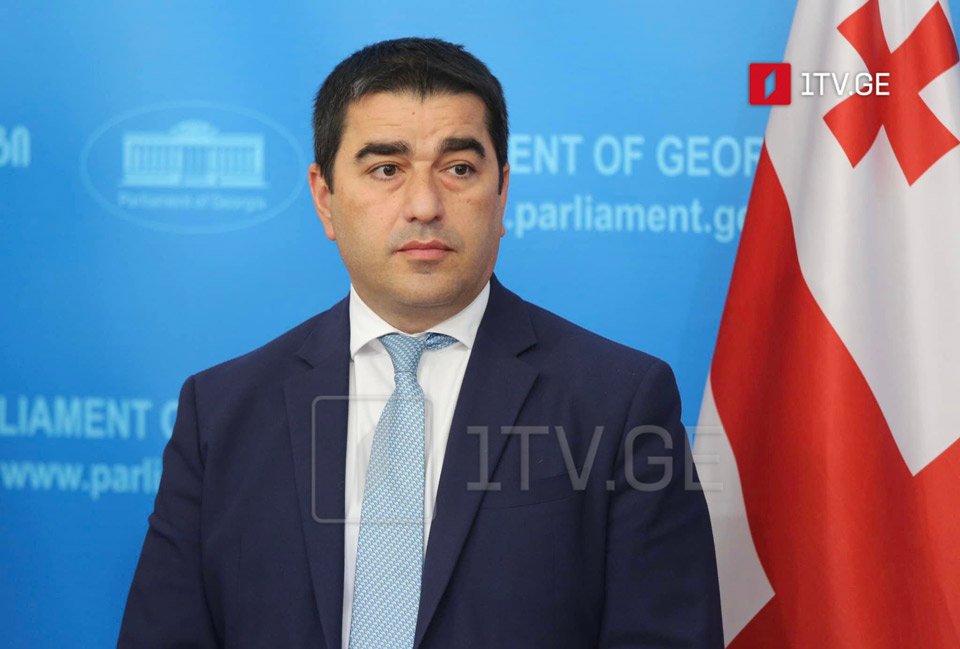
Georgian Parliament Speaker Shalva Papuashvili on Monday addressed the PACE President, Tiny Kox.
Below is a full letter:
A long-standing partnership of the Parliament of Georgia with the Parliamentary Assembly of the Council of Europe allows me to address you with regards to Resolution 2463 (2022): “Further escalation in the Russian Federation’s aggression against Ukraine, debated under the urgent procedure of the fourth part of the ordinary session. Despite our full solidarity to Ukraine in the face of the Russian aggression, approval of the following amendment has prevented the members of the Georgian Delegation from supporting the Resolution: “the Assembly calls on the Russian authority for the immediate release of Vladimir Kara-Murza. The Assembly also calls for a review of cases of other political prisoners opposed to Putin in the Russian Federation and other countries, and for their release (including Mikheil Saakashvili – a Ukrainian citizen and former President of Georgia)”.
We believe that the inclusion of Mikheil Saakashvili in this amendment (a) changes the essence and spirit of the Resolution, and (b) undermines the fundamental values of PACE and the credibility of organization in upholding human rights, democracy and rules of law across Europe. The European Court of Human Rights issued over 100 judgements during Mr. Saakashvili’s rule, including 13 cases on Article 2 (right to life), 34 cases on Article 3 (prohibition of torture), 15 cases on Article 5 (right to liberty and security), and 44 cases on Article 6 (right to a fair trial). Moreover, the Court underlined in its Alexander Girgvliani murder case (Enukidze and Girgvliani v. Georgia) that Mr. Saakashvili hindered an effective investigation and appropriate punishment.
The Report on Human Rights Development in Georgia in 2004-2012 made by Mr. Thomas Hammamberg, former Council of Europe Commissioner for Human Rights and the EU Special Adviser on Constitutional and Legal Reform and Human Rights in Georgia in 2013 is a testament to systemic violations of the Convention-related rights during Saakashvili’s presidency. It identifies an alarming situation in areas of judiciary, penitentiary, law enforcement, rights of minorities, rights to take part in public affairs, freedom of expression, assembly and association, and social justice. Mr. Saakashvili has been convicted in Georgia in two criminal cases (the one on the above-mentioned Girgvliani case and the other on organizing an attack against opposition MP Valeri Gelashvili).
Three other criminal cases are pending (on the exceeding and abusing of official powers during the breaking up of anti-government protests on November 7, 2007, and the subsequence seizure of Imedi TV, an independent television broadcaster; on embezzlement of funds from the State Protection Service for personal use; and on illegal crossing of the Georgian state border). The ECHR refused to accept Mr. Saakashvili’s case regarding his treatment by Georgia’s penitentiary system. ECHR has found there were no “special circumstances” in the application relating to respect for human rights, which would have required the body to continue the examination of the case.
The decision of the European Court has once again confirmed that the rights and interests of Mikheil Saakashvili were fully protected in the penitentiary system per the standards of the ECHR. Georgia has both a clear track record of protecting human rights, democracy and rule of law since 2012 and closely cooperating with the ECHR in implementing its judgements. Georgian cases to the ECHR dropped 5,5 times in 2013-2021 compared to Mr. Saakashvili’s rule in 2004-2012, owing to the progress in credibility, independence and professionalism of the Georgian courts.
This progress has been duly reflected in the Resolution 2438 “The honoring of obligations and commitments by Georgia” adopted by the Assembly during the second part of the 2022 ordinary session. Having this in mind, we believe there is no evidence of political motivations in the charges against Mr. Saakashvili other than politically-driven speculations. Therefore, the adoption of language as in amendment 4 represents an unsubstantiated challenge for the Georgian legal system, invites unjustified suspicion against our country in international fora and undermines Georgia’s reform progress in human rights and the rule of law since 2012.
More importantly, the unfounded provisions on Mr. Saakshvili jeopardize the credibility of PACE within the wider Georgian public and erode our efforts to solidify support for the ambitious reform agenda aligned with recommendations of the relevant PACE resolutions.
We remain hopeful that PACE members will in future be guided only by the best interests of the organization and its fundamental values. We stand ready to provide detailed insight on any issue of your interest about Georgia.
Please, accept, Mr. President, the assurances of my highest consideration and esteem.”








